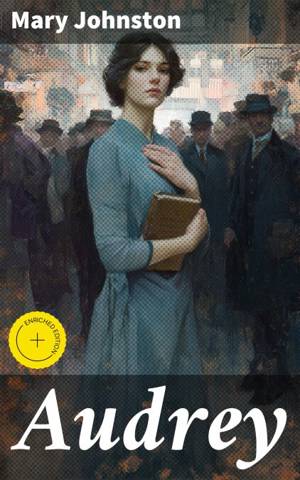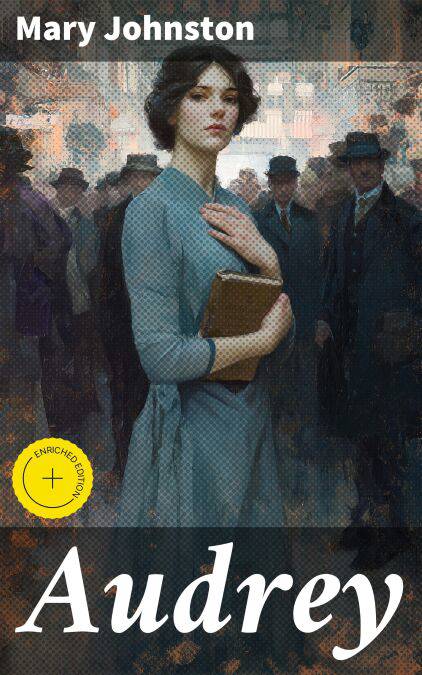
- Afhalen na 1 uur in een winkel met voorraad
- Gratis thuislevering in België vanaf € 30
- Ruim aanbod met 7 miljoen producten
- Afhalen na 1 uur in een winkel met voorraad
- Gratis thuislevering in België vanaf € 30
- Ruim aanbod met 7 miljoen producten
Zoeken
Audrey E-BOOK
Enriched edition. Exploring the Legacy of Slavery and Freedom in the Antebellum South
Mary Johnston
E-book | Engels
€ 1,99
+ 1 punten
Uitvoering
Omschrijving
In her novel "Audrey," Mary Johnston presents a poignant exploration of the complexities of identity and societal expectations in the early 20th century. Written in a lyrical prose style that reflects the period's romanticism, Johnston intricately weaves together themes of personal ambition, resilience, and the struggle for self-actualization. Set against the backdrop of a rapidly changing America, the narrative follows the titular character, Audrey, as she navigates the societal constraints of her time, ultimately seeking a path that honors her individuality while grappling with the expectations of family and community. Through rich characterization and evocative descriptions, Johnston immerses readers in a world where personal dreams often collide with societal realities. Mary Johnston, a notable figure in early American literature, draws from her own experiences as a novelist and suffragist to enrich her narratives with a deep understanding of women's struggles. Her advocacy for social reform and gender equality profoundly influenced her writing, and "Audrey" stands as a testament to her commitment to portraying the battles women face in pursuit of their aspirations. Johnston's dedication to her craft speaks to her background as a groundbreaking writer during a time of considerable social upheaval. For readers seeking a heartfelt depiction of women's inner lives intertwined with societal commentary, "Audrey" is highly recommended. Johnston's ability to blend personal narratives with broader social themes provides a captivating lens through which the challenges of identity and ambition are examined. This novel not only resonates with its historical context but continues to offer relevant insights into the ongoing conversation about gender, freedom, and self-discovery.
In this enriched edition, we have carefully created added value for your reading experience:
- A succinct Introduction situates the work's timeless appeal and themes.
- The Synopsis outlines the central plot, highlighting key developments without spoiling critical twists.
- A detailed Historical Context immerses you in the era's events and influences that shaped the writing.
- A thorough Analysis dissects symbols, motifs, and character arcs to unearth underlying meanings.
- Reflection questions prompt you to engage personally with the work's messages, connecting them to modern life.
- Hand‐picked Memorable Quotes shine a spotlight on moments of literary brilliance.
- Interactive footnotes clarify unusual references, historical allusions, and archaic phrases for an effortless, more informed read.
In this enriched edition, we have carefully created added value for your reading experience:
- A succinct Introduction situates the work's timeless appeal and themes.
- The Synopsis outlines the central plot, highlighting key developments without spoiling critical twists.
- A detailed Historical Context immerses you in the era's events and influences that shaped the writing.
- A thorough Analysis dissects symbols, motifs, and character arcs to unearth underlying meanings.
- Reflection questions prompt you to engage personally with the work's messages, connecting them to modern life.
- Hand‐picked Memorable Quotes shine a spotlight on moments of literary brilliance.
- Interactive footnotes clarify unusual references, historical allusions, and archaic phrases for an effortless, more informed read.
Specificaties
Betrokkenen
- Auteur(s):
- Uitgeverij:
Inhoud
- Aantal bladzijden:
- 440
- Taal:
- Engels
Eigenschappen
- Productcode (EAN):
- 4057664643810
- Verschijningsdatum:
- 24/11/2019
- Uitvoering:
- E-book
- Beveiligd met:
- Digital watermarking
- Formaat:
- ePub

Alleen bij Standaard Boekhandel
+ 1 punten op je klantenkaart van Standaard Boekhandel
Beoordelingen
We publiceren alleen reviews die voldoen aan de voorwaarden voor reviews. Bekijk onze voorwaarden voor reviews.








